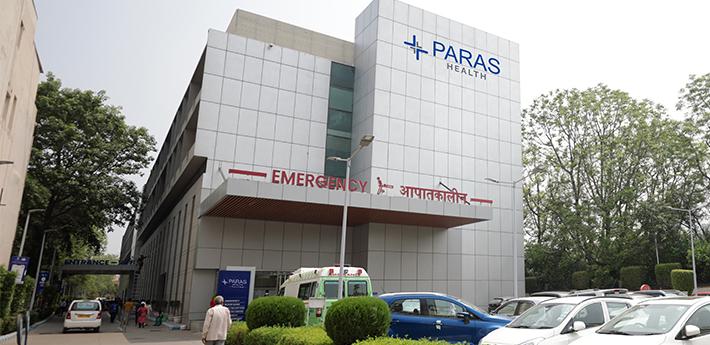Exploring Alternative Healthcare Models Beyond Hospitals
In the ever-evolving world of healthcare, alternative models have emerged as compelling alternatives to traditional hospital-based care. These innovative approaches offer patients and providers new avenues for healthcare delivery, with a focus on holistic well-being, patient-centered care, and cost-effectiveness. In this comprehensive article, we will delve into the world of alternative healthcare models, shedding light on their unique advantages and why they are gaining momentum in the modern healthcare landscape.
I. The Rise of Alternative Healthcare Models
Over the past few decades, alternative healthcare models have gained significant traction. This can be attributed to several key factors, including the increasing emphasis on preventive care, the rising cost of hospital-based treatments, and the desire for more patient-centric approaches to health. Let's explore some of the primary alternative healthcare models that are transforming the industry.
A. Integrative Medicine
Integrative medicine is an innovative approach that combines traditional Western medicine with complementary and alternative therapies. This model recognizes the importance of treating the whole person, not just the disease, and often incorporates practices like acupuncture, herbal medicine, and mindfulness meditation. Integrative medicine emphasizes the partnership between patient and practitioner, fostering a sense of empowerment and active participation in one's own healthcare.
B. Direct Primary Care
Direct Primary Care (DPC) is a patient-centered model that focuses on a direct relationship between patients and their primary care physicians. In this model, patients pay a monthly membership fee for unlimited access to primary care services. This eliminates the need for insurance, copays, and deductibles, making healthcare more affordable and accessible. DPC offers longer appointment times, same-day or next-day scheduling, and enhanced doctor-patient relationships.
C. Telemedicine
Telemedicine has experienced a remarkable surge in popularity, especially in the wake of the COVID-19 pandemic. It allows patients to consult with healthcare professionals remotely through video calls, phone calls, or secure messaging. Telemedicine provides greater flexibility, convenience, and accessibility to healthcare services, particularly for those in remote or underserved areas. It has also proven effective in managing chronic conditions and reducing unnecessary hospital visits.
D. Holistic Health Centers
Holistic health centers take a holistic approach to healthcare, addressing the physical, emotional, and spiritual aspects of well-being. These centers often offer services such as acupuncture, chiropractic care, nutritional counseling, and holistic therapy. Patients who seek alternative healthcare options find these centers appealing for their comprehensive approach to healing and overall health improvement.
II. The Advantages of Alternative Healthcare Models
Alternative healthcare models offer several compelling advantages that set them apart from traditional hospital-based care. Let's explore some of these benefits in more detail.
A. Patient-Centric Care
One of the most significant advantages of alternative healthcare models is their unwavering focus on patient-centered care. These models emphasize listening to patients, understanding their unique needs, and involving them in healthcare decisions. Patients are not just passive recipients of care; they are active participants in their healing journey.
B. Cost-Effectiveness
Alternative healthcare models often prove to be more cost-effective than hospital-based care. For instance, direct primary care eliminates the need for costly insurance plans and reduces overhead, leading to more affordable care for patients. Additionally, the prevention-focused approach of many alternative models can result in long-term cost savings by addressing health issues before they escalate.
C. Preventive Care
Preventive care is a cornerstone of alternative healthcare models. They prioritize early detection and prevention of diseases, reducing the need for expensive treatments and hospitalizations. This approach not only saves money but also leads to better health outcomes for patients.
D. Holistic Approach
Alternative healthcare models acknowledge that health is not just about the absence of disease but also about overall well-being. They take a holistic approach, addressing physical, mental, emotional, and even spiritual health. This comprehensive focus leads to better quality of life for patients.
III. The Future of Healthcare
As alternative healthcare models continue to gain momentum, they are reshaping the future of healthcare. Their patient-centered, cost-effective, and holistic approaches are attracting a growing number of patients and providers. The future holds great promise for these models as they become integral components of a more comprehensive, accessible, and personalized healthcare system.
IV. Integrating the Best of Both Worlds in Udaipur
In the enchanting city of Udaipur, known for its rich cultural heritage, there is a growing demand for healthcare that combines tradition with innovation. While alternative healthcare models offer a refreshing perspective, it's essential to acknowledge the importance of traditional healthcare facilities. Finding the best hospital in Udaipur that integrates the principles of patient-centered care, cost-effectiveness, and a holistic approach is crucial for the health and well-being of the community.
When seeking the best hospital in Udaipur, consider factors such as the range of services offered, patient satisfaction ratings, and the integration of modern and alternative healthcare practices. The ideal healthcare institution in Udaipur should strive to provide comprehensive care that aligns with the evolving needs of the community.
Discovering the best hospital in Udaipur goes beyond conventional metrics. It involves understanding the institution's commitment to patient welfare, its contribution to community health, and its innovative approaches to healthcare delivery. In the vibrant landscape of Udaipur, where tradition meets modernity, finding a hospital that resonates with the city's ethos is paramount.
In conclusion, alternative healthcare models are not just alternatives; they represent a paradigm shift in healthcare delivery. They offer patient-centered care, cost-effectiveness, and holistic well-being like never before. As we journey into the future of healthcare, it's evident that these models will play a vital role in shaping a healthier world for us all.


Comments
Post a Comment